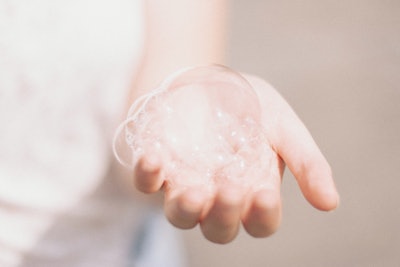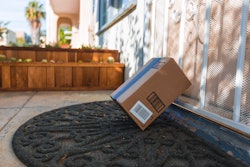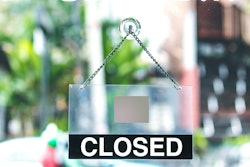
Dr. Bronner’s has always stood out on shelves. The company is famously known for its social justice label filled with imagery alluding to Christianity, poetry, sustainability and achieving the impossible dream. The labels even include Dr. Bronner’s life goal—“to keep my health, to do my work, to love, to live, to see it.”
Now, 150 years since the company first started, Dr. Bronner’s soap is more popular than ever as the Coronavirus disease (COVID-19) global pandemic has made people stockpile essentials, including soap. However, the company hasn’t compromised on its corporate values as demand continues to increase. According to a company statement regarding COVID-19, its hand sanitizer is being produced at 600% its usual rate, and they are reserving 2% of all hand sanitizer production to be donated to at-risk communities.
“Dr. Bronner was a real person. His idea – and the family still holds onto it- is constructive capitalism. You should share your profits with the people that help you make them. He also said that you always have to take care of Spaceship Earth because that’s all there is,” explains chief operating officer Michael Milam. “ [Dr. Bronner’s is] a fifth-generation soap company that came out of the guild system in Germany, and this is the third generation of the company in America. Its functionality started in 1948 here [in the United States]. Over the past 15 years, we have grown 11-fold, and manufacturing has always been in Southern California.”
The company’s corporate values often align closely with its customers, creating consumer loyalty. You see, Dr. Bronner immigrated from Nazi Germany, and even lost his parents in the concentration camps, so putting good out into the world was important to him. Milam explains that Dr. Bronner would stand in Pershing Square in Los Angeles telling people about the soap and his mission, but not many would actually listen to him – so he put it on the label, creating a signature piece.
“He took peace plan and put it on the bottles, so even if they didn’t have cash, he still caught their attention because they were reading it at home in their shower,” Milam says.
Putting sustainability first
The soap market, especially in the age of COVID-19, is extremely competitive. However, Milam points out that Dr. Bronner’s soaps differ from its competitors in various ways. He explains that the company’s soaps are in fact “real” soaps, meaning that it’s a salt of a fatty acid.
“Back in World War II, all the soaps were like the kinds you can make at home. That is what we still are. It is a vegetable oil reacted with either a potassium hydroxide or sodium hydroxide,” says Milam. “Soaps now are synthetically based or a mix of synthetic and water to have it foam more. Ours are almost fully biodegradable and it does so rather quickly. In addition, our supply chain is very clean, both ethically and chemically speaking. You can understand everything that’s on our label.”
Dr. Bronner’s takes pride in being sustainable. In 2003, the company became the largest personal care company certified under USDA’s National Organic Program, pioneering 100% post-consumer recycled plastic bottles. In 2014, it committed to becoming a zero-waste company, with an end goal in mind for 2025. In its 2020 All-One! sustainability report, it details its renewable energy systems, efficient transportation, responsible packaging and sourcing of raw materials from local farmers who use regenerative organic practices that draw down atmospheric carbon.
“Most of our inputs are agricultural, and that contributes to our sustainability. We have been engineering a new standard called regenerative organic,” says Milam. “All our sustainability goes through our cost page and the way that we structured our supply chain. It’s organic to get in the door, and then after that we regenerative.”
Milam explains that regenerative organic as a dynamic agro – such as dynamic agroforestry – that uses complimentary plantings increases the yield of the plant that is wanted, further helping smallholder farmers and locking up carbon into the soil.
“We think that by 2021, that just by the tonnage of soil that’s being produced, we should be carbon positive,” Milam says.
Accepting automation
One thing that has been made clear during the global pandemic is the need for warehouse automation. The company is able to make roughly 3,000 gallons of liquid soap in 2.5 hours. However, Dr. Bronner’s has diverse product offerings, such bar soap, shampoos and lip balm, which requires a range of different skillsets and machinery.
Still, Dr. Bronner’s utilizes both automation and human employees in its warehouses.
“We use lots of automation, but you still need people to run it. The actual machines that makes the soap are fully PLC control equipment. We have five filling lines and we still do a little bit by hand,” Milam says. “We do that because we ship to 22 countries, and there are some things that just aren’t suitable for machines. We have machines of varying speeds and that keeps the quality up while keeping the cost down.”
Despite utilizing automated machinery, Dr. Bronner’s has never had to lay anyone off because of it. Milam reassures that the company is always willing to find something else for that person to do.
“We bring automation in to improve the quality, improve the workflow and improve employee satisfaction,” says Milam. “Automation allows you to keep your margin.”
Maintaining quality
Ensuring the quality of its products is crucial to Dr. Bronner’s business, and a lot of it relies on knowing the ins and outs of its supply chain, Milam explains. Part of the company’s fair-trade supply chain is that it increases visability as much as possible.
“We can trace our batches back to the farmers, and we also have relationships with them. We know that plants that produce the oil very well,” says Milam. “We're a modern company, we keep the soap production and the filling under statistical process control. There's QA on the supply side, just making sure that your processes are good. Then we do a healthy dose of QC to make sure that nothing got by us in there.”
Maintaining that quality means continuing to manufacture in the United States because it limits the amount of disruptions the supply chain is exposed to.
“When we think about global transport, we always think of it as a utility - you pay the money and it happens and things just show up. But, when things like the West Coast ports slowdown in 2014 happen, you realize that really is on the other side of the world and there are forces that can keep the product from getting there. If you manufacture locally, you're putting the risk off,” says Milam.
















